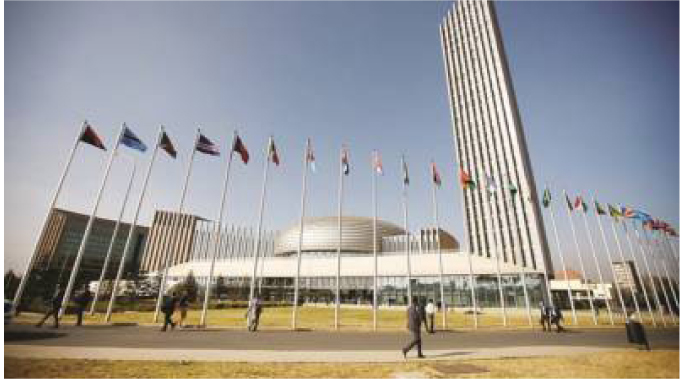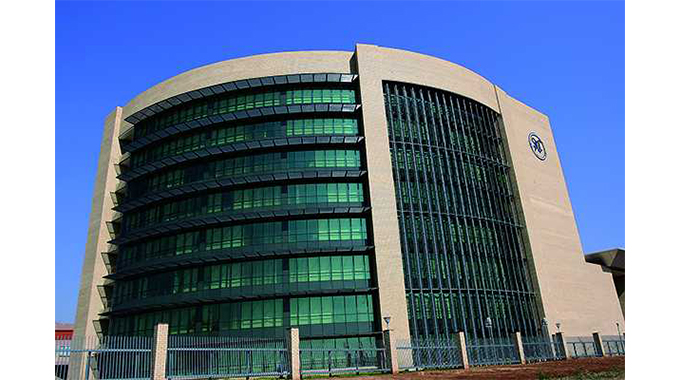Africa Day must go beyond cultural celebrations

Ranga Mataire, Group Political Editor
EACH year, Africa commemorates Africa Day on May 25. Much of the celebrations are accompanied by colourful apparels, cultural festivities and generally merry-making that reflects our collective Ubuntu as a people.
Although the cultural festivities are critical instilling self-pride and imbuing the younger generation with a shared sense of history, it is equally important that on this day we take stock of the teething challenges hindering tangible unity as was the vision of the founding fathers of the Organisation of African Unity (OAU), now African Union.
According to the African Union, Africa Day is intended to celebrate and acknowledge the successes of the continental body since its creation on May 25, 1963 in fighting colonialism and apartheid as well as reflecting upon the challenges confronting the continent in a global environment.

Africa Day
Colonialism and apartheid have since been vanquished but the continent still suffers from the residual effects left by the horrendous existence under minority rule.
In short, Africa still faces a myriad of challenges that include slow economic progress that has led to human capital flight, internal conflicts largely fomented by outsiders, provision of adequate and efficient health facilities, low intra-trade and a number of bottlenecks that hinder movement of goods and people.
The challenges are not insurmountable. However, the fact that we continue to face the same challenges decades after the end of apartheid and colonialism speaks to lack of concrete continental unity in decisively dealing with problems.
As we write, at least 15 African countries are in some sort of strife. The DRC, Cameroon, Ethiopia, Mali, Burkina Faso, South Sudan, and Mozambique are facing instability emanating from internal conflicts. Conflicts by their nature retard economic development and have a devastating effect on the general populace. The common denominator in all these conflicts is the apparent hand of outsiders.
Why have we not been able to devise mechanisms to deal with foreign interference in our domestic politics? How do we deal with some of our compatriots who find it amenable to be willing lackeys of the same forces that once colonised and subjugated us? Isn’t it time that we devise collective ways of dealing with outside forces that seek to undermine our sovereignty, unity and general existence as nation-states?
We must be able to call a spade a spade in devising common guidelines in dealing with compatriots who coalesce with foreigners to undermine our sustenance as nations and as a continent. Without concrete collective unity, the continent will continue being at the mercy of outsiders with nefarious agendas.
On health care, the Covid-19 pandemic taught Africa the dangers of mortgaging provision of good health care to foreign donors.
Provision of modern and efficient health care must be a regional and continental priority including supporting medical research on various ailments.

THE Southern African Development Community (Sadc)
While the strides in eliminating communicable diseases are commendable, the continent still lags behind in scientific research and ensuring that health facilities are accessible to all.
We surely have all the resources and the human capital to manufacture medical essentials needed in saving lives.
The main factors affecting increased intra-African trade levels include regional integration, economic diversification, poor trade logistics, conflict, infrastructure, incongruent trade laws and border issues.
Another pertinent issue needing urgent collaborative action is enhancing regional and continental intra-trade. According to the Economist Intelligence of October 14, 2022:
“Trade volumes within Africa’s four largest regional trade blocs —Southern African Development Community (Sadc); East African Community (EAC); Economic Community of West African States (ECOWAS); and Central African Economic and Monetary Community (CEMAC) — are generally low as a share of member states’ total trade volumes. The export basket of most countries in Africa are largely dominated by commodities, while significant barriers to trade — including high tariffs on many goods, limited regulatory convergence and poor connecting infrastructure — mean that trade flows between states will generally remain low.”
While it is acknowledged that countries need to be on the lookout for cross-border crimes, some of the hassles encountered by cross-border traders at the hands of customs officials and police at roadblocks is just not necessary.
It appears as though some border authorities deliberately violate the principle of free movement of people and goods for no apparent reasons except to promote corruption. In order to enhance intra-trade, African states need to speed up the implementation of regional integration agreements to eliminate tariff and non-tariff barriers.
African countries need to undo the colonial legacy of individual countries’ trade being dominated by trade with former colonial rulers rather than with each other.
A good example is Senegal whose biggest trading partner is France, while the Gambia trades more with United Kingdom while trade between the two neighbours is very insignificant. Zimbabwe is a bit different and peculiar in that its biggest trading partner is South Africa.
Another debilitating scenario is that most of the continent’s roads and railways lead towards the ports rather than linking countries across regions. Even air travel is a bit cumbersome as in most cases one has to travel via some European or Middle Eastern country in order to connect to another African country. All these challenges can be addressed if African countries move beyond rhetoric and concretise economic integration.
On human capital flight, which is commonly referred to as brain drain, Africa need to acknowledge that since time immemorial human beings have always been migrating from area or one country to another in search of greener pastures. Sadly, in the post-colonial epoch, human capital flight has always been one way leading to underdevelopment of the continent.
African young nerds are leading various multinational companies in the global north when such expertise and skills are much needed in developing countries. A concerted effort needs to be undertaken in ensuring skills retention by creating a conducive working environment for Africa’s human resource base to thrive.
The Zimbabwe government is leading the way in initiating a process to halt the continued haemorrhaging of human capital.
The Government has set up the Skills Attraction, Retention and Development Fund whose main aim is to benchmark remuneration of those with essential skills and expertise at very competitive levels. The fund is meant to galvanise the Public Service Commission (PSC) to attract highly skilled and experienced professionals at all levels to drive economic development.
The wish is that such a fund can be replicated across regions and the continent as a whole.
So as the continent celebrates Africa Day, citizens must take time to reflect on the challenges hindering tangible unity. Yes, it is time to celebrate the arduous decolonisation journey but we must never lose sight of the fact that we are still far from attaining economic independence and prosperity.









Comments